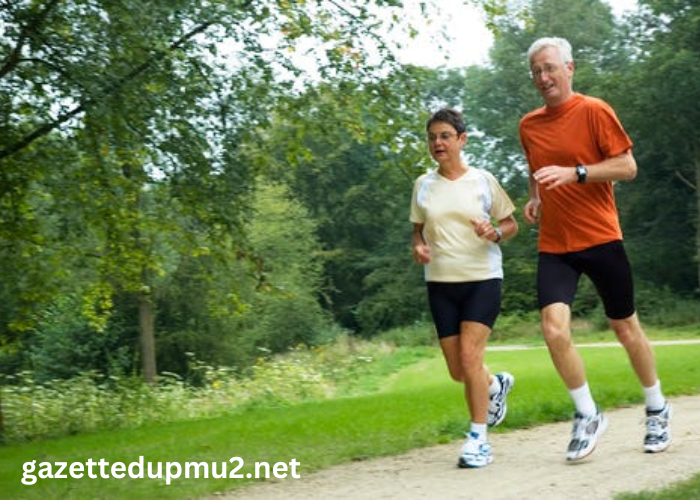In today’s fast-paced world, where the demands of work, family, and daily life often leave us feeling drained and stressed, the pursuit of holistic health and fitness has never been more essential. We live in an era where information is readily available, yet we often find ourselves overwhelmed by contradictory advice and quick-fix solutions. In this article, we will explore the concept of holistic health and fitness, understanding its components, and uncovering the transformative power it holds in unlocking our vitality.
The Holistic Approach to Health and Fitness
Holistic health and fitness are based on the idea that our well-being is interconnected across various aspects of our lives. It goes beyond just the physical and encompasses our mental, emotional, and even spiritual well-being. To unlock true vitality, one must address and nurture each of these dimensions.
Physical Health
Physical health is the foundation of holistic well-being. It encompasses the strength and functionality of our bodies, as well as our overall physical condition. To achieve physical vitality, several key components must be considered:
- Nutrition: Proper nutrition is the cornerstone of physical health. What we put into our bodies directly affects how we feel and function. A balanced diet rich in whole foods, vegetables, fruits, lean proteins, and healthy fats is crucial.
- Exercise: Regular physical activity is essential for maintaining a healthy body. It not only helps us manage our weight but also improves cardiovascular health, boosts our mood, and enhances our overall energy levels.
- Sleep: Sleep is the body’s natural way of restoring and rejuvenating itself. A consistent sleep schedule and adequate rest are essential for physical recovery and vitality.
- Hydration: Staying hydrated is often underestimated but plays a vital role in maintaining physical health. Dehydration can lead to fatigue and a decrease in overall well-being.
- Preventive Care: Regular check-ups and preventive care are important to catch and address health issues early. This includes vaccinations, screenings, and health assessments.
Mental Health
Mental health is equally important to physical health and is often intertwined. A sound mind is better equipped to maintain physical health, and physical well-being can positively impact mental health. Key aspects of mental health include:
- Stress Management: Chronic stress can have detrimental effects on both mental and physical health. Techniques such as mindfulness meditation, yoga, and deep breathing exercises can help manage stress.
- Emotional Well-being: Acknowledging and processing emotions is essential for mental health. Seeking therapy or counseling when needed can provide valuable tools for emotional well-being.
- Mental Stimulation: Keeping the mind active through activities like reading, puzzles, and learning new skills can contribute to mental vitality.
- Social Connections: Human beings are social creatures, and maintaining healthy relationships and connections with others is vital for mental health.
- Work-Life Balance: Balancing work and personal life helps prevent burnout and promotes mental well-being.
Emotional Health
Emotional health centers on understanding and managing our emotions effectively. It involves recognizing and coping with a wide range of emotions, from happiness and love to anger and sadness. Here are some key aspects of emotional health:
- Emotional Awareness: Being in touch with your emotions and understanding their triggers is the first step in emotional health.
- Emotion Regulation: Learning healthy ways to manage and express your emotions is crucial. This can include techniques like journaling, talking to a friend, or seeking professional guidance.
- Self-compassion: Treating yourself with kindness and understanding, especially during difficult times, is essential for emotional well-being.
- Resilience: Developing resilience allows you to bounce back from setbacks and challenges, ultimately contributing to emotional vitality.
Spiritual Health
Spiritual health doesn’t necessarily have to be tied to religion; it’s about finding meaning and purpose in life. It’s about connecting with something greater than oneself and aligning with one’s core values. Key elements of spiritual health include:
- Mindfulness and Meditation: These practices help individuals stay present, connect with their inner selves, and gain a sense of peace and purpose.
- Gratitude: Cultivating a sense of gratitude for life’s blessings can enhance spiritual well-being.
- Service to Others: Engaging in acts of kindness and service to others can foster a sense of purpose and fulfillment.
- Exploration of Beliefs: Reflecting on one’s beliefs and values and exploring their alignment with one’s actions can be a part of the spiritual journey.
The Interconnectedness of Holistic Health and Fitness
What makes holistic health and fitness truly powerful is the recognition that these dimensions are interconnected. Our physical health affects our mental and emotional well-being, just as our mental and emotional health can impact our physical health. For instance:
- Exercise and Mental Health: Physical activity releases endorphins, which are natural mood lifters. Regular exercise is often prescribed as a treatment for mild to moderate depression and anxiety.
- Nutrition and Mental Clarity: A well-balanced diet rich in nutrients is essential for cognitive function. Nutrient deficiencies can lead to mental fog and mood swings.
- Stress and Physical Health: Chronic stress can lead to physical ailments such as heart disease, digestive issues, and weakened immunity.
- Emotional Health and Relationships: Poor emotional health can strain relationships, while positive emotional well-being can lead to healthier, more fulfilling connections with others.
Recognizing these connections allows us to take a more comprehensive and effective approach to our well-being. When we address one aspect of holistic health and fitness, it often has a ripple effect, positively impacting other areas of our lives.
The Journey to Holistic Health and Fitness
Embarking on a journey to unlock vitality through holistic health and fitness requires dedication, self-awareness, and a commitment to change. Here are the key steps to get started:
Self-Assessment
Before you can make meaningful changes, it’s essential to assess your current state of health and well-being. Take stock of your physical health, mental and emotional well-being, and spiritual alignment. Consider what areas need improvement and what your goals are.
Set Clear Goals
Establish specific, measurable, and realistic goals for each dimension of holistic health and fitness. For example, your goals might include running a certain distance, practicing meditation daily, or improving your relationships with loved ones.
Create a Holistic Plan
Develop a holistic plan that addresses each dimension of health and fitness. This might involve designing a balanced workout routine, crafting a nutrition plan, scheduling time for mindfulness practices, and setting aside moments for self-reflection.
Seek Professional Guidance
Depending on your goals and your current state of health, it may be beneficial to consult with professionals. Consider working with a personal trainer, nutritionist, therapist, or spiritual advisor to guide you on your journey.
Start Small and Build Momentum
Begin by making small, manageable changes to your daily routine. Gradual progress is often more sustainable than attempting drastic changes all at once. As you experience success, you’ll build the confidence and motivation to take on more significant challenges.
Cultivate Mindfulness
Mindfulness is a powerful tool for holistic health and fitness. It involves being fully present in the moment and non-judgmentally aware of your thoughts, feelings, and sensations. Mindfulness practices, such as meditation and deep breathing.





